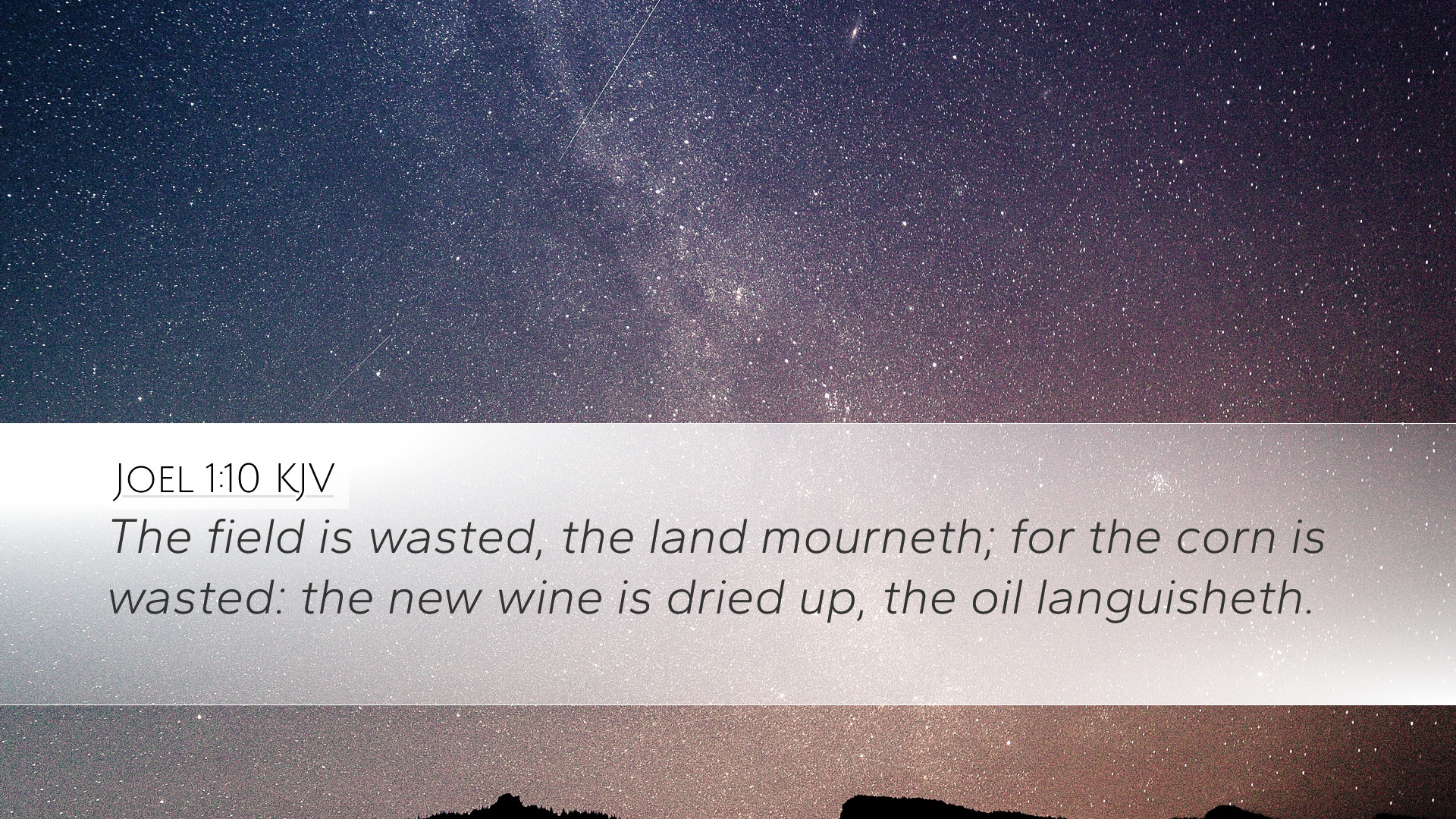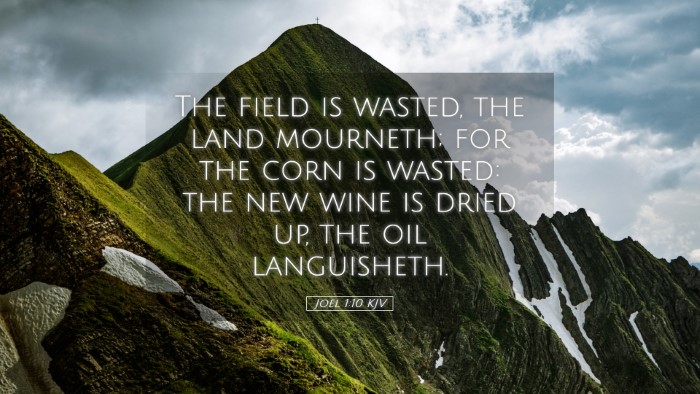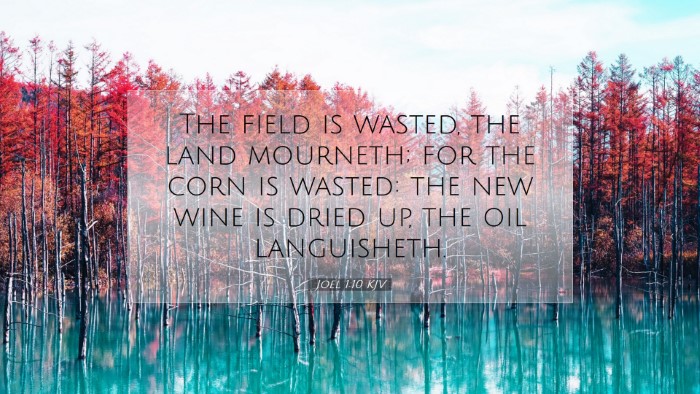Old Testament
Genesis Exodus Leviticus Numbers Deuteronomy Joshua Judges Ruth 1 Samuel 2 Samuel 1 Kings 2 Kings 1 Chronicles 2 Chronicles Ezra Nehemiah Esther Job Psalms Proverbs Ecclesiastes Song of Solomon Isaiah Jeremiah Lamentations Ezekiel Daniel Hosea Joel Amos Obadiah Jonah Micah Nahum Habakkuk Zephaniah Haggai Zechariah MalachiJoel 1:10
Joel 1:10 KJV
The field is wasted, the land mourneth; for the corn is wasted: the new wine is dried up, the oil languisheth.
Joel 1:10 Bible Commentary
Commentary on Joel 1:10
Joel 1:10 states: "The field is wasted, the land mourneth; for the corn is wasted: the new wine is dried up, the oil languisheth." This verse captures the dire agricultural situation in Judah due to a devastating locust invasion and serves as a profound metaphor for spiritual desolation.
Analysis
This verse poignantly illustrates the devastation that has befallen the land of Judah. The imagery of the wasted field and mourning land speaks to the broader themes of loss and lamentation.
- Wasted Fields: The term "wasted" conveys not just physical destruction but also a sense of abandonment and desolation. Matthew Henry notes the agricultural crisis reflects a divine judgment due to Israel's spiritual apostasy.
- Mourning Land: The personification of the land emphasizes the deep connection between the people and their environment. The land's mourning symbolizes the communal grief over the loss of sustenance and prosperity.
- Impact on Produce: The specific mention of corn, new wine, and oil signifies the staples of their economy and worship. Barnes explains that these crops were vital not only for daily sustenance but also for offerings to God, hence the loss directly impacts their relationship with Him.
Theological Implications
From a theological standpoint, Joel 1:10 raises crucial questions about divine judgment and human responsibility.
- Divine Judgment: Adam Clarke suggests that the locusts serve as instruments of God's judgment, reminding the Israelites of the consequences of turning away from God’s covenant.
- Human Response: The desolation calls for repentance. The severity of the situation is a wake-up call for the people to return to God, emphasizing the need for communal and individual introspection.
- Consequences of Disobedience: The physical devastation mirrors spiritual decay. This highlights the interconnectedness of personal sin and communal suffering—a theme prevalent throughout Scripture.
Applications for Today
For contemporary pastors, students, and scholars, Joel 1:10 serves as a vital reminder of the consequences of societal neglect of spiritual matters.
- Environmental Stewardship: The lament over the land's condition challenges us to consider how our actions affect creation. Acknowledging God’s sovereignty calls for responsible stewardship of the earth.
- Community Reflection: This text invites communities to reflect on their collective spiritual health. How do current societal issues reflect our relationship with God?
- Calls to Action: Leaders are encouraged to guide their congregations towards a life of repentance and deeper communion with God, recognizing that true restoration comes from Him.
Conclusion
Joel 1:10 ultimately serves as a clarion call—a vivid depiction of ruin that rouses the heart to seek restoration. In times of distress, whether personal or communal, turning back to God is portrayed as the only path to healing and restoration. As we reflect on this verse, may we be motivated to foster a deeper relationship with our Creator, acknowledging His lordship over all aspects of our lives and the world around us.


